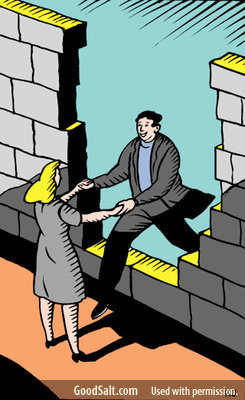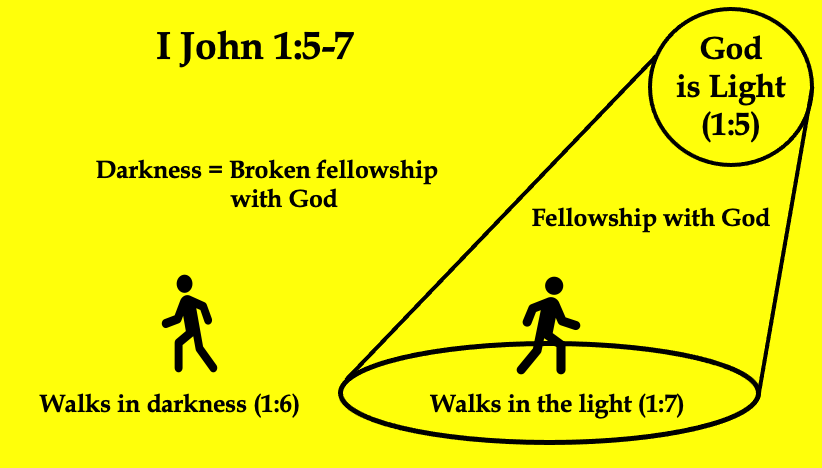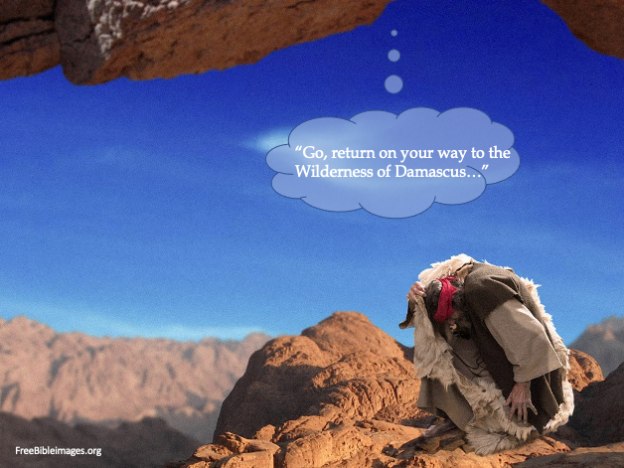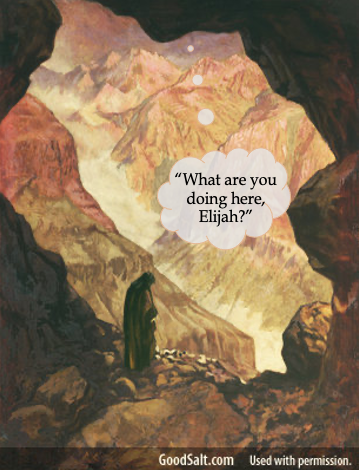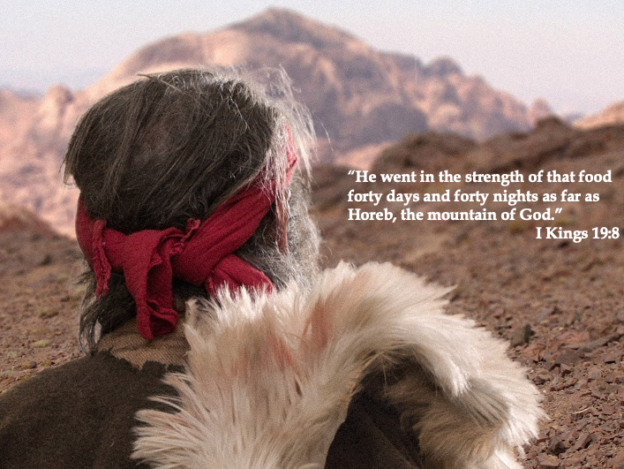This exercise is adapted from Michael Dye’s The Genesis Process. [1]
All of us have been hurt and wounded by others, especially those we trusted. From beginning to end, the Bible emphasizes the importance of forgiveness. God even commands us to forgive (Ephes. 4:32). Therefore, Jesus taught us to pray, “12 And forgive us our debts, as we forgive our debtors… 14 For if you forgive men their trespasses, your heavenly Father will also forgive you. 15 But if you do not forgive men their trespasses, neither will your Father forgive your trespasses.” (Matt. 6:12, 14-15). Forgiveness is so important because it is connected to God’s forgiveness of us. I cannot enjoy fellowship or closeness with God the Father if I am not willing to forgive those who have hurt me. Being unforgiving connects us to our past hurts and makes it difficult to fully enjoy the blessings of our relationship with God and with other people.
One of the ways we can know we have not forgiven someone is we keep rehearsing bitter and defensive thoughts toward those who have hurt us. We keep going “back to court” in our minds with all the things we wish we had said or want to say to them. [2] God invites us to release the hurt others have caused to us. Forgiveness requires the cancelling of a debt (cf. Matt. 18:21-35). Perhaps the person who has hurt us owes us an apology, justice, money, repentance, restoration, suffering, understanding, etc. God wants us to cancel the debt they owe us.
There are three things that can hinder us from forgiving others: judgments, vows, and false beliefs. [3] When someone hurts us, we can hold on to judgments about them out of fear. We don’t realize it, but our judgments are an attempt to protect ourselves from painful memories associated with our abusers. We may judge their motives and try to read their minds. We tell ourselves, “He or she is evil, selfish, and does not care about me or love me.” Christ warns us about making such judgments (Matt. 7:1-2). These judgments can cause heart wounds that keep us from healing and growing. When we refuse to forgive that person, we can bind ourselves to the person we are judging and become more like that person.It is important to repent or change our minds about our judgments and ask God to release the person and ourselves from the consequences. [4]
Not only do judgments about our offenders hinder us from forgiving them, but so do the vows we make. Jesus opposed the practice of distorting vows so they could convey or conceal a lie (Matt. 5:33-35). We can make inner vows to survive the hurts we have suffered. For example, when a person I trusted hurts me, I may make an inner vow that says, “I will never trust anyone again!” Or “If I need others, they will take advantage of me!” These types of vows can become self-curses that result in isolation and loneliness, which cause us even more pain. These inner vows can often become subconscious and do not disappear with time. They are like a contract that must be renounced or broken. It is important to ask God to forgive us and break these vows we have made. [5]
False beliefs or lies can also prevent us from forgiving others. We may tell ourselves, “If I forgive them, they will get off the hook and there will never be any justice.” But the truth is, only God knows what is just (Rom. 12:19). Or “If I forgive, I will become vulnerable to them again.” The truth is that just because you forgive them does not mean that they are safe, and you must trust them again. They must earn your trust. For reconciliation on a horizontal level to take place, the perpetrator must apologize, repent or change his mind and behavior, and ask for forgiveness (Matt. 18:15-18; Luke 17:3-4). [6]
Forgiveness is so important because it gives us the ability to move on in life. Being unforgiving connects us to our past hurts and makes it difficult to receive the blessings of new relationships. Forgiveness occurs when the one who was wounded cancels the debt owed to him or her. When we forgive, we are free from those who hurt us. [7]
If you are struggling to forgive your perpetrator(s), take some time today to do this exercise: [8]
1. Ask God to reveal to you the people who have hurt you. Make a list. Start with those closest to you (e.g., your parents, siblings, spouse, children, or a close friend; etc.). Do the exercise with them one at a time. Think about the people whom you still “go back to court with” in your mind:
_______________________________________________
_______________________________________________
_______________________________________________
_______________________________________________
_______________________________________________
_______________________________________________
2. Wounds: What he or she did to you that hurt you: abandoned, abused, betrayed, criticized, lied, misrepresented, neglected, rejected, etc. What was the wound(s)?
______________________________________________
_______________________________________________
_______________________________________________
_______________________________________________
_______________________________________________
_______________________________________________
3. Judgments (Matt. 7:1-2): The things you believe about them: e.g., they are evil, lazy, selfish, stupid, weak, didn’t love me, didn’t care for me, etc.). What are your judgments?
_______________________________________________
_______________________________________________
_______________________________________________
_______________________________________________
_______________________________________________
Repent of these judgments and ask God to release the person and yourself from the consequences (Matt. 7:1-2).
4. Vows (Matt. 5:33-35): Vows can be like self-cures, promises you told yourself to survive the wound(s), e.g.,“I don’t need or trust anyone,” or “whatever I do, it won’t be enough,” or “all men/women are ______,” etc.
_______________________________________________
_______________________________________________
_______________________________________________
_______________________________________________
_______________________________________________
Renounce and repent of these vows, asking God to forgive you and to break them.
5. Effect on You: What effect did the wound have on you (How did you cope)? Addiction, anger, anxiety, codependency, depression, food, isolation, stress, workaholism, etc.?
_______________________________________________
_______________________________________________
_______________________________________________
_______________________________________________
_______________________________________________
6. Their Debt: What debt do they owe you? What would they have to do for you to trust them again? Apologize, change their behavior, experience humiliation, justice, make restitution, money, repent, seek your forgiveness, suffer, etc.
_______________________________________________
_______________________________________________
_______________________________________________
_______________________________________________
_______________________________________________
Talk to the Lord, asking Him to make you both willing and able to cancel their debt as He has already cancelled yours to Him through Christ (Matt. 18:23-33; Ephes. 4:32).
7. False Beliefs. What false belief or lie is keeping you from forgiving them? Say the following false beliefs below to yourself to see if they feel true. If they do, then meditate on the true beliefs until the false beliefs no longer feel true. There are blank spaces at the end where you can write in the false belief(s) and true belief(s) that are not on the list.
False belief: If I forgive them, they will get off the hook and there will never be any justice.
True belief: Only God knows what is just (Rom. 12:19).
False belief: Forgiveness means I must pretend that nothing ever happened.
True belief: Forgiveness is not denial. You must tell yourself the truth about what they did and how it affected you to really be able to forgive them from the heart (Matt. 18:35; John 8:32).
False belief: If I forgive, I will become vulnerable to them again.
True belief: Just because you forgive them doesn’t mean that they are safe, and you must trust them again (Matt. 18:15-18; Luke 17:3-4).
False belief: My unforgiveness punishes them and is justified because I am right; they will never see their wrong and repent if I let go.
True belief: The truth is, it is God’s mercy and kindness that leads us to repentance. Only He knows what will change them (Rom. 2:4; Ephes. 4:24-32).
False belief: _____________________________________________
_____________________________________________
True belief: _____________________________________________
_____________________________________________
False belief: _____________________________________________
_____________________________________________
True belief: _____________________________________________
_____________________________________________
8. Forgiveness Prayer (Matt. 6:12, 14-15). If you are ready, insert the name of the person you have chosen to forgive into the following prayer of forgiveness. You may want to say it in your own words but be sure to include all the elements.
Forgiveness Prayer:
Father God, Your Word says that to be forgiven, I must forgive. And so, I come to You in the name of Jesus, in obedience and love, and I bring (name) _____ before You. I cancel _____ debt to me (e.g., apology, change of behavior, humiliation, justice, restitution, money, repent, seek forgiveness, suffer, etc.). I choose to forgive this hurt against me, and I ask that You not hold these sins against _____ on my account. I release _____ from any desire on my part to see _____ punished. In fact, as You have told me to do, I bless _____ in Your Son’s name, Jesus. You know _____ desires, needs, and hurts. You know what would bless _____. And so, I ask that You pour out Your love and healing to _____ and bring _____ Your highest good, because Your name is Good and Love, and You are not willing that any should perish. Now also, Father, please heal my heart and set me free to love _____ as You do. In the mighty name of Jesus Christ, I pray. Amen.
9. The Truth sets you free (John 8:36): Pray and ask God to show you this person as He sees them. Ask Him to show you what is true. One of the great mysteries of God is that He loves the perpetrator as much as the victim. Write down any insights God gives to you as you pray.
_______________________________________________
_______________________________________________
_______________________________________________
_______________________________________________
_______________________________________________
10. Is there anything God wants you to do to heal this relationship? Check with your counselor or discipleship group before you take any action.
_______________________________________________
_______________________________________________
_______________________________________________
_______________________________________________
_______________________________________________
FOOTNOTES:
[1] Adapted from Michael Dye’s The Genesis Process: For Change Groups Books 1 and 2 Individual Workbook (Michael Dye/Double Eagle Industries, 2012), pp. 123-133.
[2] Ibid., pp. 123-124.
[3] Ibid., pp. 126-128.
[4] Ibid., pg. 129.
[5] Ibid., pp. 127-128, 130.
[6] Ibid., pg. 128.
[7] Ibid.
[8] Adapted from Ibid., pp. 129 -133.

